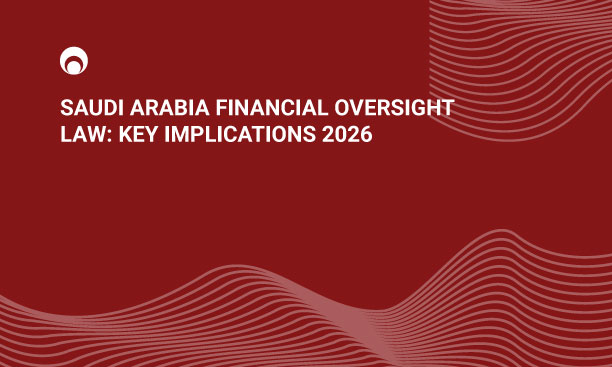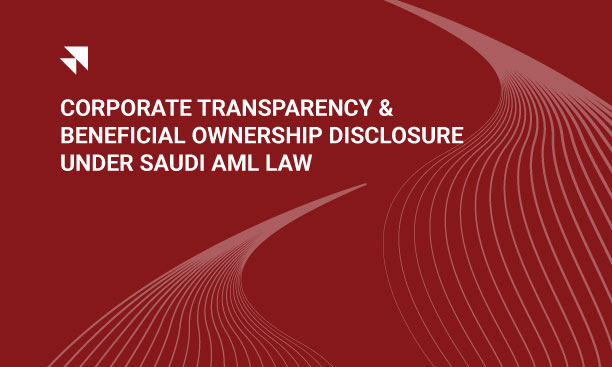Understanding the Essence of Commercial Registration (CR) in Saudi Arabia
Commercial Registration (CR) in Saudi Arabia is not just a bureaucratic formality. It is the legal foundation for any business. Without a CR, a company cannot operate, issue invoices, open bank accounts, or sign binding contracts.
CR ensures transparency, economic growth, and investor protection. The Ministry of Commerce regulates CR to maintain ethical, financial, and operational standards. This system builds trust and creates a unified commercial identity for local and foreign businesses.
Saudi Arabia has transformed under Vision 2030. The CR process is now digital, efficient, and accessible. Both local and foreign companies can enter the Saudi market with fewer barriers.
The Legal Foundation and Role of the Ministry of Commerce
Commercial registration is grounded in the Companies Law and the Commercial Registry Law. Both are administered by the Ministry of Commerce (MoC). MoC ensures commercial activities align with national economic goals and global standards.
Specific CR rules apply to Limited Liability Companies (LLCs), Joint Stock Companies, and Foreign Branches. The ministry manages registration, compliance, annual renewal, and ownership or structure changes.
The MoC uses digital platforms like Marouf and Qiwa. These platforms simplify registration, verification, and monitoring. Online registration reduces paperwork, processing time, and administrative burden.
The Ministry also enforces transparency, anti-fraud, and fair competition laws. This helps position Saudi Arabia as one of the most business-friendly environments in the Middle East.
Key Requirements for Obtaining a Commercial Registration (CR)
There are several important requirements imposed by the Ministry of Commerce before a business is allowed to apply to a CR. The requirements are aimed at preserving integrity in the market and that all registered bodies have financial and legal responsibility.
The first thing the applicants need to do is to decide what kind of entity they want to constitute. Some of the common ones are a Sole Proprietorship, Limited Liability Company (LLC), or Branch of a Foreign Company. Both buildings have specific responsibility implications on liability, tax and ownership.
In general, the Ministry requires:
- A unique trade name, approved by the Ministry of Commerce
- A business address or physical office located within Saudi Arabia
- Copies of identification documents for all partners or shareholders
- Memorandum and Articles of Association (for companies)
- Proof of capital (minimum varies by sector and ownership structure)
- Authenticated and Arabic-translated documents for foreign entities
- Sector-specific licenses if applicable (e.g., medical, construction, IT)
These documents are subjected to a rigorous legal evaluation. In case of any conflict (lack of translations, old authorizations, unvalidated signatures, and any other), the registration can be postponed or even cancelled. Therefore, most of the investors use the services of the local law firms or corporate services providers to handle the authentication of documents and interaction with the Ministry.
The Step-by-Step Procedure for Obtaining a CR
The issuance of a Commercial Registration in Saudi Arabia has become a very digital and transparent process. The detailed breakdown is as follows:
Step 1: Select the Legal structure.
The decision will decide the business liabilities, taxes and the flexibility in operations assigned to the business. LLP is the type of structure that is commonly preferred by local and foreign investors because of limited liability and less complex compliance hurdles.
Step 2: Reserve the Trade Name
Applicants are required to suggest an application name through the portal of the Ministry of Commerce. The name shall not resemble an already existing name or contravene the Saudi cultural or religious beliefs.
Step 3: Prepare and Notarize Company Documents
In case of companies, Articles of Association and Memorandum should be notarized and translated into Arabic and uploaded into the system. This measure is necessary to make the purpose of the company, the structure of shareholding and management, legally defined.
Step 4: Submit Application Online
The applicants are provided with the services of the e-services portal of the Ministry that allows them to fill their details in and submit them along with the supporting documents electronically and pay the required fees.
Step 5: Verification and Approval
Ministry checks the submission to ensure it is accurate and complete. Applicants receive a notification through email or SMS to correct in case of the issues.
Step 6: Issuance of the CR Certificate
At approval, the official Commercial Registration Certificate is issued to the applicant that is the legal license of operating in Saudi Arabia. The certificate consists of the name of the company, CR number, type of activity and date of registration.
It is a digitized system, which was established as a part of the reforms of Vision 2030 and enables new companies to get their CR within a few days, which is an incredible improvement compared to weeks and months that it took previously.
Foreign Companies and Their Path to CR Licensing
Foreign companies face extra legal and procedural layers when registering for a Commercial Registration in Saudi Arabia. The Saudi government actively promotes foreign investment, yet it maintains some restrictions to protect national interests and enforce local laws.
Foreign investors can establish a Branch Office, a Representative Office, or a Limited Liability Company (LLC) fully owned by foreign shareholders. The process begins with obtaining an investment license from the Ministry of Investment of Saudi Arabia (MISA), previously known as SAGIA. This license allows foreign companies to perform specific business activities within the Kingdom.
After receiving the MISA license, the investor must register for a Commercial Registration (CR) with the Ministry of Commerce. The process also requires:
- Legalized and Arabic-translated incorporation documents from the parent company.
- A parent company resolution authorizing the establishment of the Saudi entity.
- Appointment of a local representative or service agent.
- Proof of financial capability and corporate solvency.
Many foreign companies underestimate the importance of translation and legalization. Every document sent from outside Saudi Arabia must go through notarization by the Saudi Embassy and the Ministry of Foreign Affairs in the country of origin. Companies that ignore this requirement often experience significant delays.
Moreover, certain sectors—such as defense, oil, and telecommunications—limit foreign ownership or require joint ventures with Saudi nationals. Understanding these regulatory limits is crucial before choosing the best structure for your Saudi entity.
Ongoing Compliance and Renewal of Commercial Registration
Obtaining a CR is only the first step. Companies must follow ongoing compliance requirements and renew their CR regularly to keep it valid. A CR usually lasts one year, so companies should renew it before it expires using the Ministry’s online portal.
The renewal process involves:
- Confirming that business activities remain unchanged.
- Payment of renewal fees
- Submitting updated financial or operational reports, if requested.
If a company misses the renewal deadline, authorities may suspend its operations or impose penalties. For example, the company cannot complete transactions, process visas, or renew other government licenses.
Moreover, companies must maintain transparency and report significant changes to the Ministry. This includes changes in directors, shareholders, registered addresses, or business operations.
Other compliance areas include submitting financial statements, paying taxes (including Zakat or corporate income tax), and following labor and Saudization regulations. Authorities strictly enforce these rules, and violations can trigger audits, fines, or even deregistration.
Penalties and Legal Consequences of Non-Compliance
The commercial laws in Saudi Arabia are explicit: the company should be incorporated into the legal framework that has been developed by the Ministry of Commerce. The companies that never register, or renew CR, or do not meet their obligations are subject to increasing fines.
The fact that operating in the absence of a valid CR is regarded as a criminal offence may meet harsh penalties. These penalties include fines, the closure of business, or even blacklisting. On the same note, providing false information or commissioning commercial fraud will attract inquiries by the Ministry of Commerce and Public Prosecution.
Reputational damage is another major risk. The CR is publicly available information; thus, clients, suppliers, and financial institutions can always check the legal status of a company. A suspended or invalid CR damages credibility. Consequently, it can result in the breaking of contracts and mistrust between stakeholders.
Therefore, compliance is not only about legal compliance, but a business survival and image control imperative.
Conclusion
To do lawful business in one of the most dynamic economies in the Middle East—Saudi Arabia—you must first establish a Commercial Registration (CR). Thanks to the digital transformation driven by Vision 2030, the process has become more accessible, transparent, and efficient.
For foreign investors, the key step is to understand and prepare for the regulatory environment. They need to secure the right licenses, submit the required documents, and follow each procedure carefully. With a valid CR, a company not only operates legally but also gains access to a wide range of opportunities in the Saudi market.
Ultimately, obtaining a CR is not just a formality—it is a declaration that your company stands ready to contribute to the Kingdom’s goals of sustainable development, transparency, and economic diversification.
FAQ
A Commercial Registration (CR) certifies that your company exists legally and can operate in Saudi Arabia. A business license, on the other hand, grants permission to perform specific activities within regulated sectors, such as healthcare, construction, or finance.
With the current online system, CR issuance can take as little as 1–3 business days, provided all documents are complete and properly translated.
Yes. Under Vision 2030 reforms, foreign companies can fully own their business in many sectors. Some industries still require partial Saudi ownership or a joint venture.
If your CR expires, you cannot operate legally. You must renew it to resume banking, invoicing, and other transactions.
Yes, all official documents submitted for CR must be in Arabic or accompanied by certified Arabic translations approved by a licensed translator.
The Ministry of Commerce regulates the issuance, renewal, and compliance of all Commercial Registrations in Saudi Arabia.






